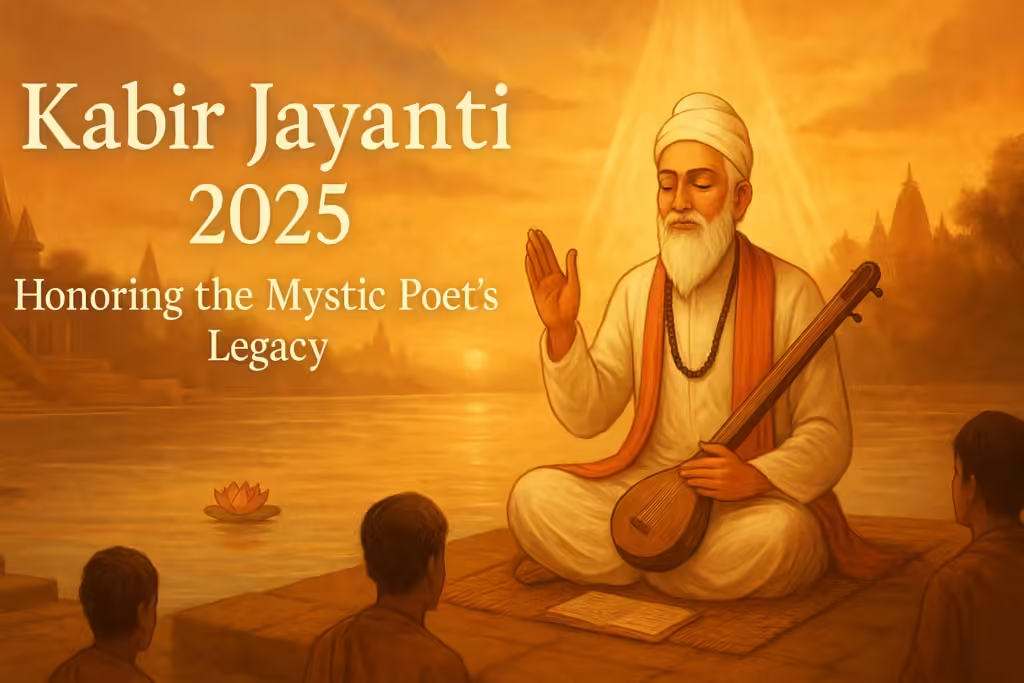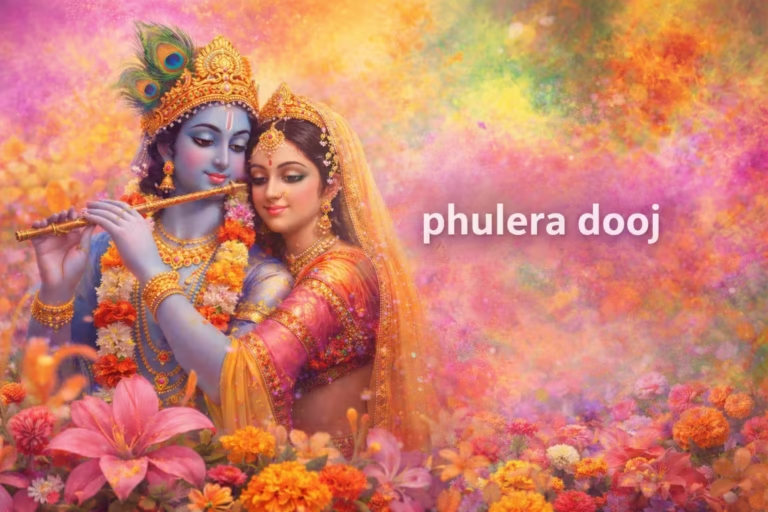Kabir Jayanti, also known as Kabir Prakat Diwas, is a significant occasion celebrated to honor the birth anniversary of the revered 15th-century poet and saint, Sant Kabir Das. In 2025, this auspicious day falls on Wednesday, June 11, coinciding with the full moon day (Purnima) in the Hindu month of Jyeshtha.

Table of Contents
Significance of Kabir Jayanti
Sant Kabir Das is renowned for his profound spiritual teachings and poetic compositions that transcended religious boundaries. His verses emphasized the importance of inner devotion, unity, and the rejection of ritualistic practices. Kabir’s teachings continue to inspire millions across various faiths, including Hindus, Muslims, and Sikhs.
Historical Background
Born in 1398 in Varanasi, Uttar Pradesh, Kabir’s early life is shrouded in mystery. While some accounts suggest he was born to Muslim parents, others believe he miraculously appeared on a lotus flower in the Lahartara pond. Raised by a weaver couple, Neeru and Neema, Kabir grew up to challenge societal norms and religious dogmas through his poetry.
Celebrations Across India
Kabir Jayanti is observed with great fervor, especially in states like Uttar Pradesh, Chhattisgarh, Haryana, and Punjab. Devotees organize satsangs (spiritual discourses), recitations of Kabir’s dohas (couplets), and community feasts. In Varanasi, the Kabir Chaura Math hosts special events, while Maghar, the place of Kabir’s demise, witnesses the Maghar Mahotsav, celebrating his teachings and legacy.
Kabir’s Teachings and Philosophy
Kabir’s philosophy centered around the idea of a formless, omnipresent God. He advocated for a personal connection with the divine, free from the constraints of organized religion. His teachings emphasized love, compassion, and the unity of all beings. Kabir’s verses are compiled in texts like the “Bijak,” “Kabir Granthavali,” and are also included in the Sikh scripture, Guru Granth Sahib.
Kabir’s Influence on Various Religions
Kabir’s teachings have had a profound impact on multiple religious traditions. In Sikhism, his hymns are part of the Guru Granth Sahib. The Kabir Panth, a religious community following his teachings, has millions of adherents across India. His emphasis on inner spirituality over external rituals resonates with both Hindu and Muslim mystic traditions.
Notable Kabir Dohe (Couplets)
Kabir’s dohas are celebrated for their simplicity and depth. Here are a few that encapsulate his teachings:
- “बुरा जो देखन मैं चला, बुरा न मिलिया कोय।
जो दिल खोजा आपना, मुझसे बुरा न कोय।”
(I went in search of the wicked, but found none as wicked as myself.) - “काल करे सो आज कर, आज करे सो अब।
पल में परलय होएगी, बहुरि करेगा कब।”
(Do tomorrow’s work today, and today’s work now. If the moment is lost, how will the work be done?)
Conclusion
Kabir Jayanti 2025 offers an opportunity to reflect on the timeless wisdom of Sant Kabir Das. His teachings encourage us to look beyond superficial differences and seek the divine within ourselves. As we commemorate his birth anniversary, let’s strive to embody his principles of love, unity, and inner devotion in our lives.



